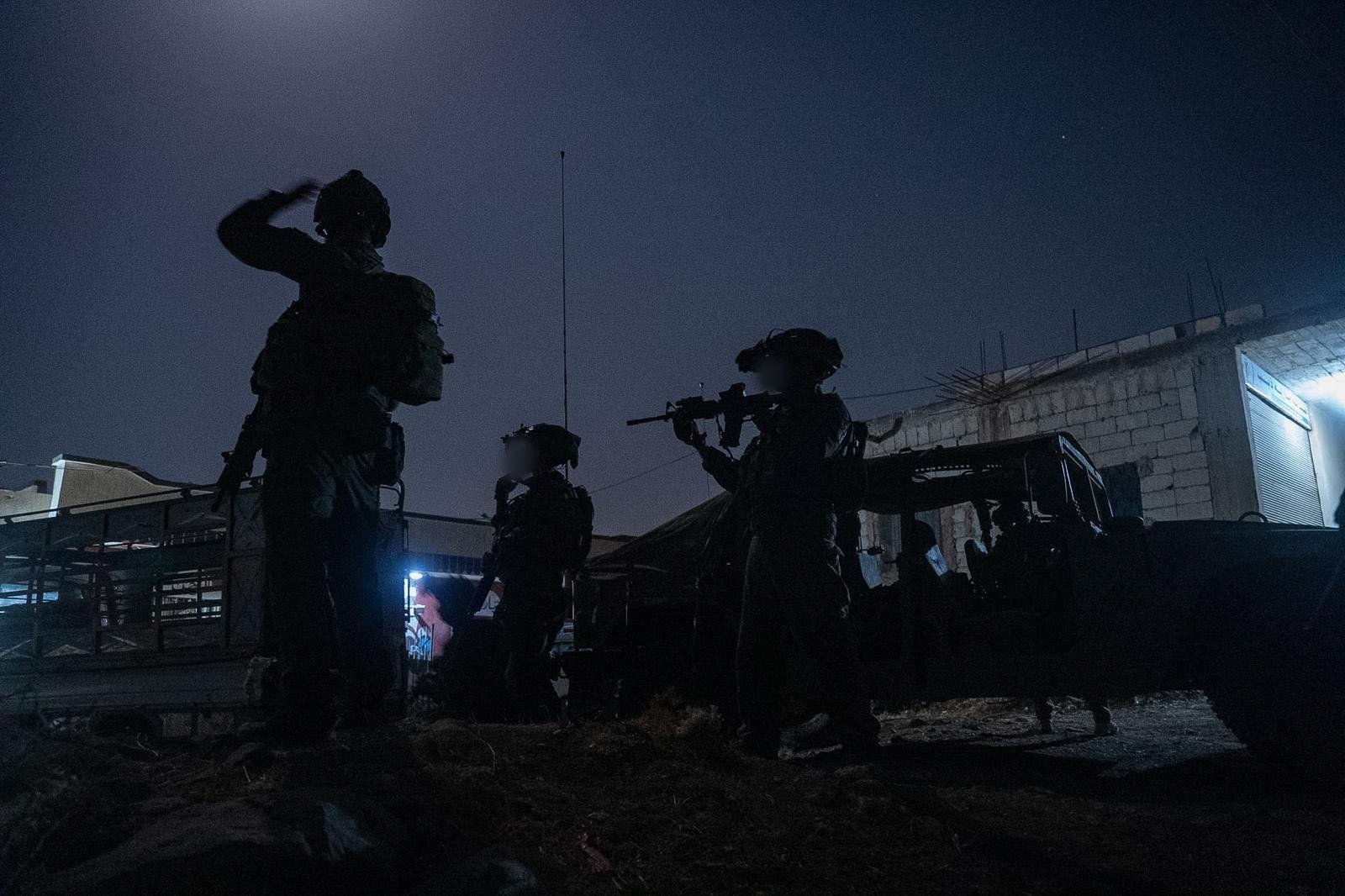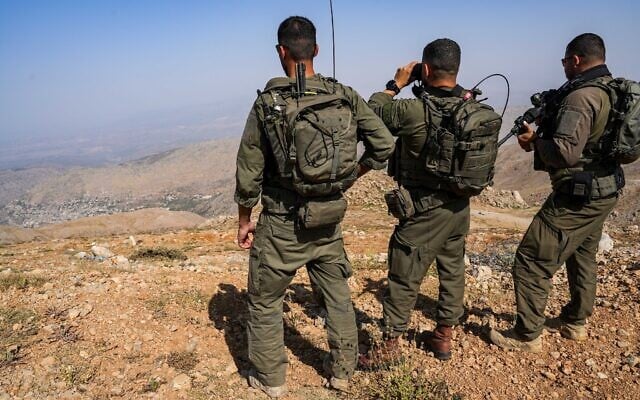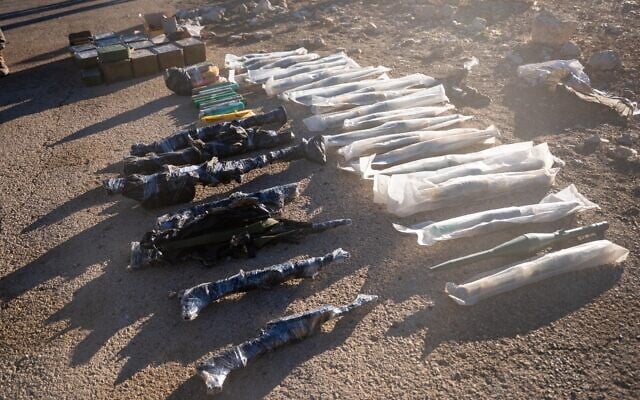


Several suspects detained by Israeli troops in southern Syria in recent months were in terror cells and operating on behalf of Iran’s Unit 840, a clandestine unit within the Islamic Revolutionary Guard Corps’ elite Quds Force, the IDF said Friday.
The members of the terror cells who were nabbed in the series of recent raids had been directed by Unit 840 to carry out attacks against Israel, according to the IDF.
In March and April, two Unit 840 field operatives, identified as Zeidan al-Tawil and Muhammad al-Kuryan, were arrested in Syria, the IDF said.
In recent weeks, the military said, Israeli forces also arrested operatives of several other terror cells, whose members had been activated by Salah al-Husseini and Muhammad Shuayb, IRGC operatives who were killed in Israeli airstrikes in Lebanon in July.
The IDF said Husseini and Shuayb were among “the most prominent operatives” involved in smuggling weapons from Iran to the West Bank, as well as to Lebanon and Syria.
The interrogations of the Syrian suspects revealed that not all of them knew whom they were working for, “and that their recruitment to work with Unit 840 was in many cases done without revealing the unit’s true motives, but rather through financial bribery,” the military said.
Israel has been involved militarily in Syria since the fall of the Bashar al-Assad regime in December 2024. In the immediate aftermath, the IDF occupied Syria’s demilitarized zone and destroyed most of the Assad military’s facilities in a widespread bombing campaign.
Since the fall of the Assad regime, the IDF has been deployed to nine posts inside southern Syria, mostly within the UN-patrolled buffer zone.
Israeli troops have been operating in areas up to around 15 kilometers (9.3 miles) deep into Syria since December, aiming to capture weapons that Israel says could pose a threat to the country if they fall into the hands of “hostile forces.”
In recent months, the IDF said ground troops had conducted over 300 “routine operations” in southern Syria, including arresting suspected terror operatives, preventing “enemy entrenchment” and thwarting arms smuggling to Lebanon.
Under Assad, Syria had been a thoroughfare for Tehran’s arms deliveries to its Lebanese proxy Hezbollah. Iran has also smuggled arms to terror groups in the West Bank through Syria via both Jordan and Lebanon.
Israel has carried out hundreds of strikes in Syria since the overthrow of Assad, despite initiating an unprecedented dialogue with the new authorities. However, in recent months, such airstrikes in Syria have been increasingly rare.
On Wednesday, IDF Chief of Staff Lt. Gen. Eyal Zamir indicated that the Israeli military was behind rare airstrikes in Syria earlier in the week.
The strikes on Monday reportedly hit a military base near Homs and targets near the coastal city of Latakia and the historic city of Palmyra.
“In recent days, we have struck in several arenas simultaneously. In Syria, we thwarted capabilities that posed a threat to our freedom of action,” Zamir said at a Navy officers’ graduation ceremony.



